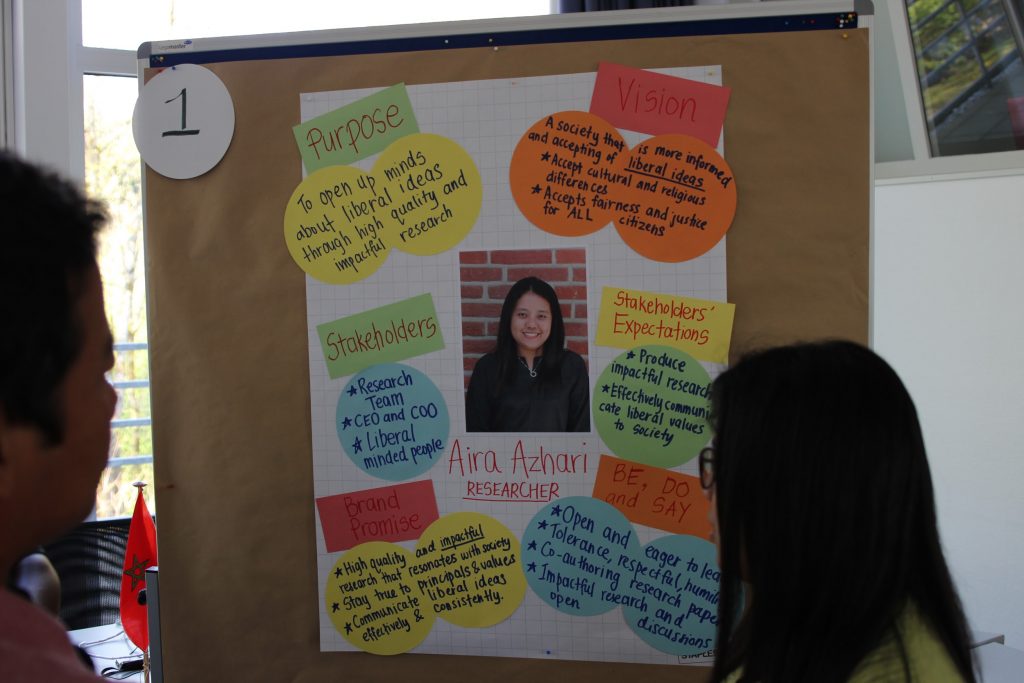IAF Malaysia
Leadership for Young Leaders Seminar (17-29 April 2016)

On the 17th of April 2016, 23 young leaders from around the world descended upon the small town of Gummersbach, Germany to participate in the Leadership for Young Leaders seminar organised by the Friedrich Naumann Foundation for Freedom. Participants came from countries ranging from South Korea, Morocco, Egypt, Myanmar, Pakistan and Israel.
The 12-day seminar was targeted at young leaders from think-tanks, NGOs, and political parties. There were two facilitators for the seminar. The first was Petra Pabst, who works for the parliamentary group of the Free Democratic Party’s North-Rhine Westphalia branch, and former Vice-President of the Young Liberals of the same state. The second facilitator was Marike Groenewald, the Executive Director of Development, Learning and Training of the Democratic Alliance, South Africa’s second largest political party and the Official Opposition in Parliament.
The seminar began on 6 March 2016 with an online preparatory phase. The online phase was useful as a platform for the facilitators as well as participants to get to know each other. It was also a platform where certain tasks were assigned to each participant in preparation for the seminar. Overall, the seminar aimed to show that leadership is a trait that can be learned. At the basis of leadership, lies a set of skills and knowledge enabling the leader to be effective at what they do. These skills and knowledge are in turn influenced by certain specific attributes and traits of any individual leader, such as their beliefs, feelings, values, ethics and character. Where knowledge and skills enable the process of political leadership, attributes and traits give the leader certain way of being that make her or him unique.
To me, the most valuable takeaway from the entire seminar was discovering the importance of communication, and the different ways in which we communicate with each other. One of the exercises that stood out was a listening exercise, where we were read out certain phrases and then required to record our responses to them. It was revealing to see how differently people interpreted the exact same phrases. Another interesting exercise was when we were asked to speak to a participant of a different nationality in our own native language, and vice versa. What I found fascinating was that I struggled with trying to make the other person understand what I was saying, hence causing me to frequently revert back to English. The purpose of this exercise was to demonstrate the human need to be understood, and the fact that we often listen with the intention of replying, and not to listen for listening’s sake.
The highlight of the seminar was the trip to Berlin to attend the Free Democratic Party (FDP) Convention. Many aspects of the party Convention amazed me. Firstly, the choice of venue was interesting. The Convention was held in an old railway station, with its warehouse-like vibe giving an informal feel to the event. We were told that this move was done by the FDP to project a younger, fresher image of themselves to the public. This effort was also evident in their smart casual dress code. It was clear that the FDP was keen to rebuild its image after its defeat in the previous elections, especially amongst the youth in Germany.
The highlight of the Convention was the keynote speech by the Party Chairman, Christian Lindner. The speech was a fiery one, clearly meant to send a strong message that the Liberals will be returning in full force in the next elections. Overall, what impressed me the most about the Convention was, despite being a party that has no seats in Parliament, the FDP is still able to propagate its message of liberalism openly, convincingly, and without restriction. The diversity of the participants and politicians at the Convention dispelled my stereotypes about politics being an arena of old men. Young men and women of different cultures and ethnicities roamed the various booths of the railway station freely, creating an atmosphere that was festive, yet intellectually stimulating at the same time.
The trip to Berlin also included a visit to the Reichstag building which houses the German Parliament, the bundestag. This cradle of German democracy was an interesting visit as it provided an opportunity for us to learn about the system of government in Germany, as well as the country’s painful history. The views from the top of the glass dome of the Reichstag were breath taking, and gave perspective to the two parts of the city that was once divided.
Above all, I felt that the most valuable thing I brought home from Gummersbach was the people I met and the stories they shared with me. I made friends with those I never thought I would ever be friends with, like Ran Lazaroni from Israel and Tenzin Nangwa, an Indian-born Tibetan freedom movement activist. Through interactions with my fellow participants and facilitators, my own struggles were put into perspective. There is so much more that needs to be achieved in Malaysia, and I believe we can truly go far with the potential that we have. I know this now, after meeting people from around the world who face odds that are even more impossible than ours.